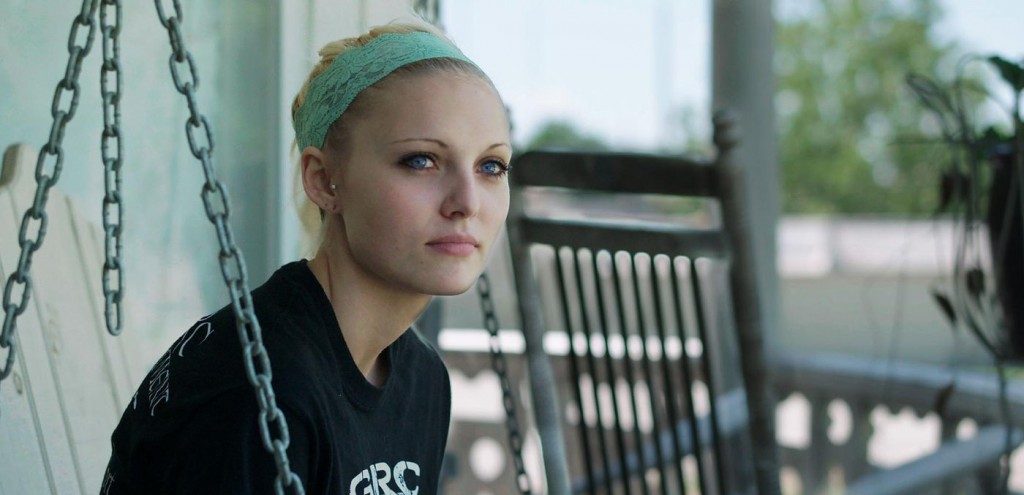Netflix’s ‘Raising Voices’ follows the story of teenage girls who navigate the toxic world of abuse and online bullying while trying to expose the abusers. The story begins with a girl named Alba whose life changes after a night of drinking and partying ends unexpectedly. As she processes her own feelings, she also finds out about and reflects on the experiences of her friends, almost all of whom have experienced abuse in one form or another. At one point, Alba refers to Daisy Coleman, a girl who also suffered sexual abuse and online bullying, and is inspired by her to fight the injustice in her own school.
Who was Daisy Coleman?
Daisy Coleman was 14 years old and a student at Maryville high school when she was allegedly raped by 17-year-old Matthew Barnett, who also went to the same school, in January 2012. Barnett’s grandfather was former Missouri State Representative Rex Barnett, and this brought a lot of attention to the case. Daisy had accused the boy of raping her and then leaving her on the front lawn of her house in the freezing cold, all while she was drunk. A similar charge was filed against another boy for assaulting Daisy’s friend.
In his defense, Barnett said that they did have sex that night but that it was consensual. In 2013, the felony and misdemeanor charges against him were dropped by the county prosecutor. In 2014, he pleaded guilty to child endangerment and received two years of probation. Meanwhile, Coleman was subject to intense abuse and cyberbullying. The case became the subject of the 2016 Netflix documentary, ‘Audrie and Daisy,’ followed by a short titled, ‘Saving Daisy.’
Daisy Coleman Took Her Own Life
Catherine Daisy Coleman died at the age of 23 from a self-inflicted gunshot wound on August 4, 2020. The news of her death was revealed by her mother, Melinda Coleman, in a since-deleted post on her social media account, where she called Daisy her “best friend and amazing daughter” and revealed that she “recovered from what those boys did to her,” referring to the sexual assault that Daisy suffered when she was 14 and the continuous and intense bullying she was subjected to in the years that followed.
Two years before her death, Daisy had started EMDR therapy in an attempt to process and heal from her trauma. Reportedly, she had also been subject to stalking and harassment by an unidentified man for months. She had posted about it on her social media account, revealing that she had filed a police complaint against the man, but it did nothing to deter him. She had also expressed the fear of leaving her house and the impact it was having on her sleep and health.
She’d also mentioned that the man had terrorized her by actually showing up at her house and pounding on her door. She also suspected that he may have stolen her keys and tried to get into her apartment, due to which she was thinking about moving to a new place. Additionally, the stalker called her from different phone numbers and posted her number on Craigslist, making things even worse for her. Daisy’s friends and family believed that the threat of the alleged stalker was one of the major reasons behind her decision to end her life. At the time, she was also reeling from the death of her brother, Tristan Ash Coleman, who died in a car accident in 2018.
This wasn’t the first time that Daisy had suffered bullying and harassment. After she came out about the assault, she and her family were heavily bullied at school and in the community. Because she had been drunk that night, it was used as an excuse to suspend her from the cheerleading team. It seemed as if the whole town had turned on her, and things got so bad that the Coleman family was forced to move away to a different town. Even then, the bullies found her online. The continued harassment, in addition to the trauma of the sexual assault, took a toll on Daisy, and she made multiple suicide attempts.
Knowing what it is like to go through something terrible and then be shunned for telling the truth, Daisy knew that support was the key to helping people and saving lives. To work for the cause, she co-founded SafeBAE in 2015 with her brother, Charlie, and two other sexual assault survivors, Jada Smith and Ella Fairon. The organist aims to focus on “the lack of sexual-violence prevention, consent education and Title IX knowledge in high schools.” Apart from this, Daisy was also a model and a tattoo artist.
Talking about the sexual assault, Daisy revealed that she had forgiven Barnett and didn’t have “any vindictive feelings toward him” because she felt “the need to stop the transaction of negativity and hate” from one person to another. She also talked about how she was trying to counter the negative feelings she struggled with and how she felt she needed to forgive herself as well, though it was much more difficult when it seemed the whole world had turned against her. She talked about the detrimental impact of the bullying she suffered and believed that she would have been in a different state had she received support instead of backlash. She talked about growing thick skin to survive all that and learning to stand up for herself, and how she wanted to keep working to help other survivors and, more importantly, focus on creating a world where people didn’t have to go through all that in the first place.
Read More: Where is Matthew Barnett Now?

